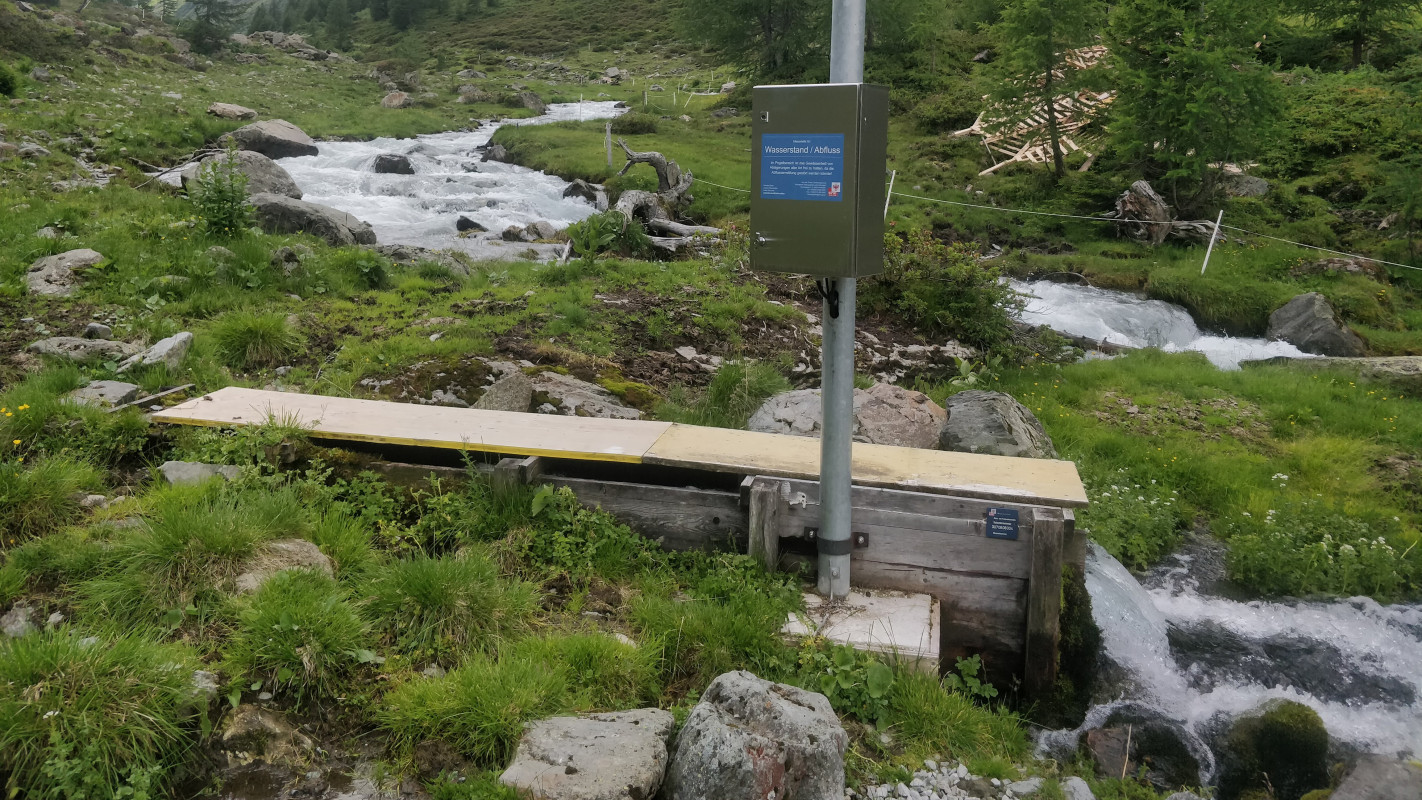WMO report on global water resources: 2024 was characterized by both extreme drought and intense rainfall
A water discharge measuring point in Tyrol (Photo: Robert Reinecke)
Johannes Gutenberg University Mainz in collaboration with Goethe University Frankfurt major contributor to the report of the World Meteorological Organization
In global terms, the past year was distinguished not only by extreme drought but also by unusually heavy rainfall. These are the core findings of the report of the World Meteorological Organization (WMO) on the status of our planet's water resources that was published today. The regions most affected by severe drought conditions in 2024 were the Amazon basin and Southern Africa. There was excessive rainfall, for instance, in the African tropics and the resultant flooding resulted in the deaths of 2500 people while 4 million were forced from their homes. Far more rain fell in Central Europe than in the reference period of 1991 to 2020. "2024 was the warmest year since the beginning of industrialization as the surface temperature of the Earth rose by a mean of 1.55°C," states Junior Professor Robert Reinecke of the Institute of Geography of Johannes Gutenberg University Mainz (JGU), who contributed to the WMO report. "And we will be facing the ever-increasing problem of more frequent droughts and more torrential rainfall as a result of climate change. Even in Germany, it is imperative that we put in place a long-term strategy that will enable us to cope with the recurring and intensifying weather extremes." Reinecke also draws attention to the fact that over the past 3 years, the rate of glacier loss has been the largest ever recorded. According to the report of the WMO, an agency of the United Nations, glaciers globally lost some 450 gigatons – in other words, 450 billion metric tons – of ice in 2024.
Concern for groundwater
Reinecke is also concerned about the state of groundwater resources. "Groundwater is a dependable source of drinking water. Unfortunately, it has been overutilized for a considerable period. Although it may appear that the levels of groundwater recovered to some extent in 2024, there continue to be losses, for instance, in Southern Europe. I consider this a cause for concern as many aquifers can require thousands of years to become fully replenished." When working on the report, Reinecke collaborated with researchers at Goethe University Frankfurt and the Global Runoff Database Centre in Koblenz, which operates under the auspices of the WMO. Together, they contributed the results of modeling and other data.
The Earth System Modeling group at JGU, headed by Reinecke, was also involved in developing the methods used to analyze groundwater data for the report and is also in charge of upgrading one of the global water models employed. In order to better understand the effects climate change is having on groundwater status, the group is currently working on collating a corresponding data record for the world as a whole.




